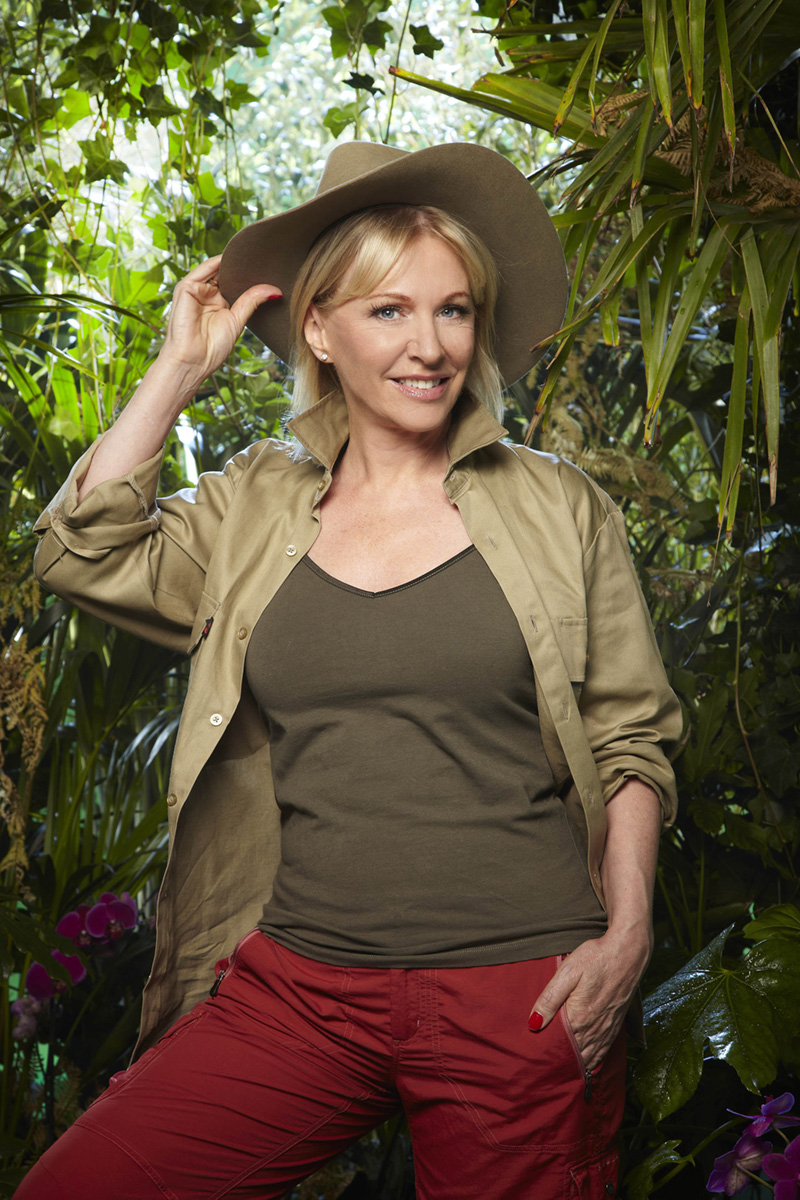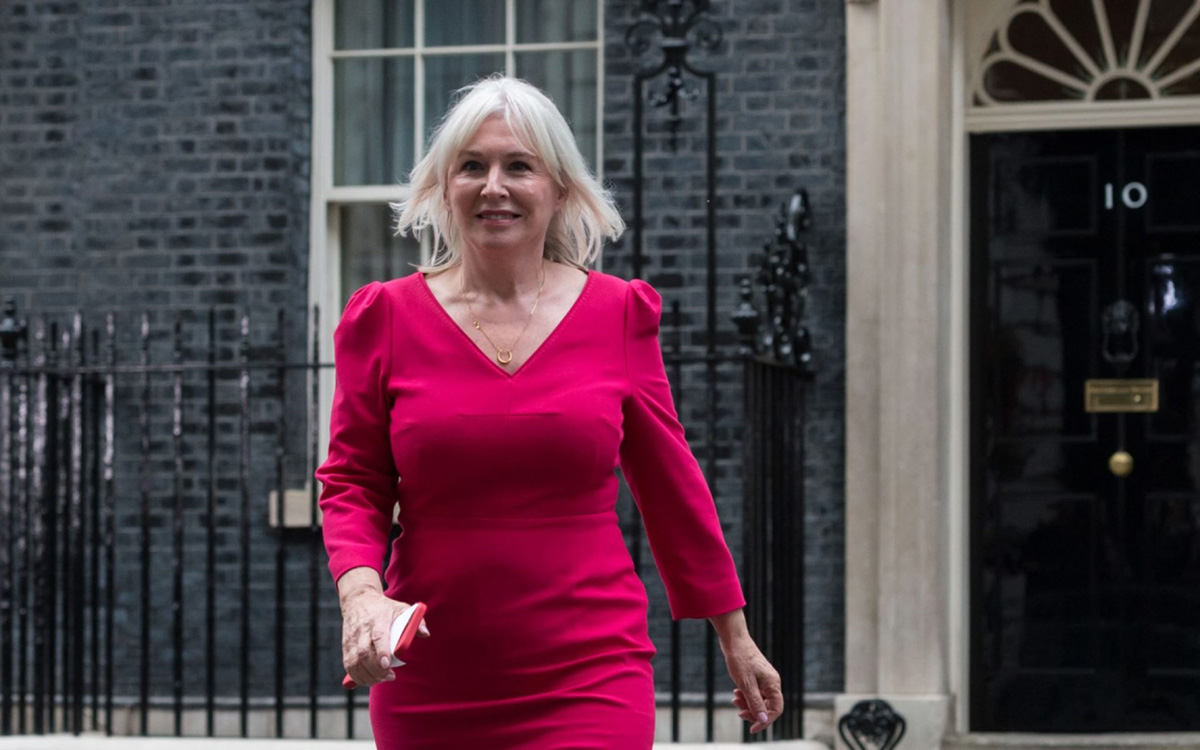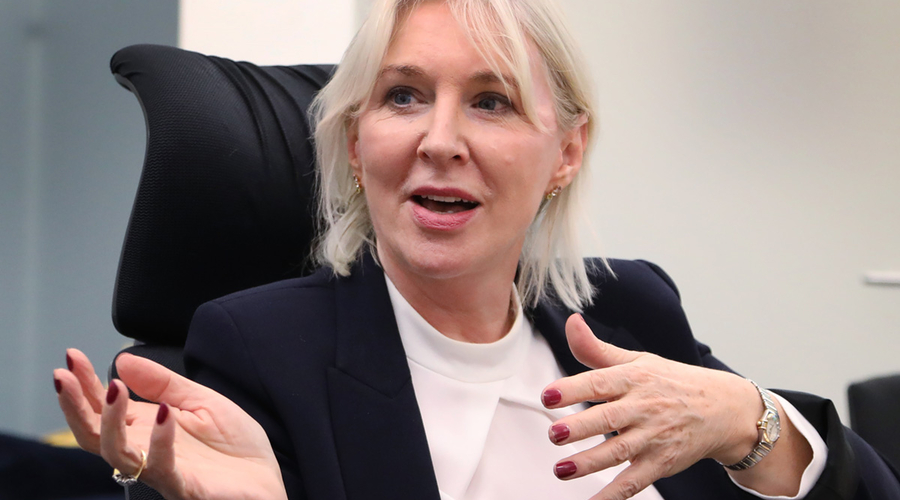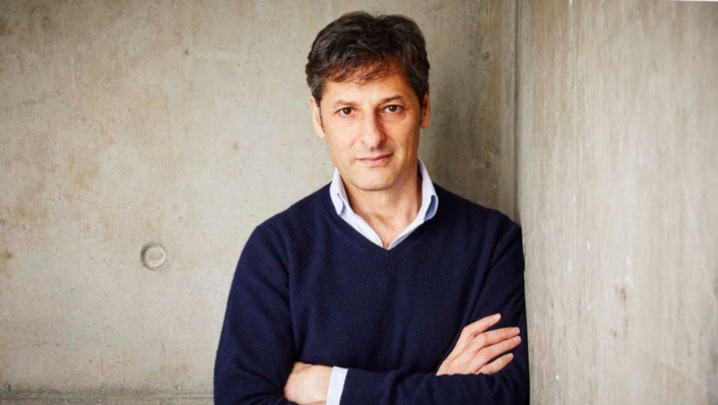Steve Clarke profiles the new culture secretary, ex-reality TV star and bestselling author, who holds the future of the BBC and Channel 4 in her hands.
If you like your politicians colourful and outspoken, look no further than Nadine Dorries, the 13th Secretary of State for the Department for Digital, Culture, Media and Sport in the past 14 years. As an Observer profile recently noted, most people agree that she is “a character”.
Unusually for a serving MP, she famously appeared in the 2012 season of ITV’s I’m a Celebrity… Get Me Out of Here!, where she was the first contestant to be voted out. This was despite winning a Bushtucker Trial by consuming a lamb’s testicle and an ostrich’s anus. Some of her fellow MPs – she entered Parliament in 2005 – were not amused. She was punished for abandoning her constituents by having the Conservative Party whip temporarily withdrawn.
In the interim, her political star has risen, thanks, in part, to her devoted loyalty to one Boris Johnson. Surprise and even incredulity were two common reactions to her ministerial promotion in mid-September, one of the results of a particularly brutal cull at what was once known as the Ministry of Fun. “Not only was John Whittingdale, who understood broadcasting deeply, sacked, most of the other ministers at DCMS were also got rid of,” notes one interested observer. “This has meant a steep learning curve for Nadine Dorries.”
Her elevation comes at a crucial time for the UK broadcasting sector. A new media bill is promised in the new year, and the Online Safety Bill continues its slow progress through Parliament.
Born in Liverpool, part of her childhood was spent on a council estate in Runcorn. She has described times when her family used to hide from the rent man when they had no money to pay him, and how, “on some days, there would be no food”.
Her father was a bus driver, who died early in her nursing career (she trained as a nurse at Warrington General Hospital). She left the region when she met her partner, Paul Dorries, a mining engineer who became a financial adviser. The couple spent a year in Zambia in the mid-1980s, where he ran a copper mine and she headed what she has described as a community school.
On her return to the UK, she founded Company Kids Ltd, a child day-care service for working parents. Dorries sold the business to Bupa, the private healthcare company, in 1998, and it was then that she set her sights on politics, becoming an MP in 2005.

Get me Out of Here! 2012 (credit: ITV)
The arts and media community’s reaction to her appointment has been, to put it mildly, sceptical. Playwright and screenwriter James Graham, an acute witness of British politicians and their aides, said: “I never want to be an artist who rolls their eyes every time there’s a new culture secretary. Nevertheless, it’s a bit worrying that it feels like an appointment deliberately designed to needle and provoke. That might be unfair, and I hope it’s not.”
He spoke for many when he added: “I’d prefer rhetoric from a minister who is supportive and wants to amplify and champion the sector.”
Opinion in political circles on Dorries’ abilities is divided. Her critics regard her as an eccentric, unpredictable figure who might be better off sticking to writing bestsellers than serving as a Cabinet minister.
Others, however, insist that she is a super-bright Parliamentarian who has risen to every political challenge presented to her (she was appointed Minister of State at the Department of Health and Social Care in May 2020).
For them, her maverick behaviour is driven by a desire to show the male Tory establishment that, despite being brought up on a Liverpool council estate, she is in every sense their equal. “This explains why Nadine can be spikey and even chippy,” says someone who has watched her way of operating.
Stewart Purvis, a former CEO of ITN and Ofcom board member and now a non-executive director of Brentford FC, inclines towards the latter view, having seen how quickly she grasped a complex brief concerning the ownership of football clubs during her first day in the Commons as Secretary of State.
“The day after she was appointed, it was her turn to do departmental questions and she was asked a question about the Brentford Golden Share. This is a fairly esoteric issue, where fans can choose a director and hold a golden share in the club, and might be used as a model in the Government’s new football policy.
“She was right across this and knew all the detail. You may have laughed at her when she appeared on I’m a Celebrity… but, to me, this showed she was very quick to master her brief.”
Her populist credentials are strong. As well as appearing on I’m a Celebrity… and writing Mills & Boon-style novels, she is a devoted fan of Coronation Street, something that was clear when she recently visited the soap’s set.
“Unlike most other culture secretaries, it was obvious that she was a regular viewer of the Street,” notes a witness to her visit. “It was also clear that she was very keen on opportunities for people who are under-represented in TV. She spent more time talking to young, diverse apprentices on the set than to anyone else.”
This desire to encourage people like herself to thrive in a sector still regarded as being too posh for its own good squares with her recent attack on what she regards as the BBC’s tendency towards nepotism, when she accused the organisation of groupthink. “We’re having a discussion about how the BBC can become more representative of the people... who pay the licence fee, and how it can be more accessible to people from all backgrounds, not just people whose mum and dad work there, and how it can become, once again, that beacon for everyone,” she told a journalist from the Daily Telegraph.
Dorries added: “I want the arts and culture, and the BBC and other organisations, and journalism, [to create] a pathway from my background, from my working-class roots, into that sector, because that pathway has completely disappeared. To me, that’s what levelling up is about.”
‘Social media companies: take note now. When harm is caused, we’re coming after it’
Is she about to inflict financial pain on the BBC by, in effect, cutting the licence fee? The speculation is that the new level of the fee, negotiated as part of the mid-term Charter review, will be a setback for Director-General Tim Davie and his Chair, Richard Sharp.
If, as reports suggest, the fee is frozen at its present level for two years before rising in line with the Consumer Price Index measure of inflation, the BBC’s ability to compete effectively with its rivals looks, to put it mildly, constrained, given the high rate of inflation in the content sector.
“Nadine needs a win over the BBC,” says a senior broadcaster, who predicts more tough decisions for Davie as the corporation decides how to deal with what will constitute a financial crisis if the fee is frozen.
“A two-year freeze would be awful for the BBC,” says Colin Browne, Chair of the Voice of the Listener and Viewer. “One year would be bad. Either way, the cuts that would need to be made would be visible and audible to viewers and listeners.”
Adding to Broadcasting House’s fears is the prospect that the ex-Daily Mail editor, BBC-basher-in-chief Paul Dacre, could be appointed Chair of Ofcom, despite him failing the initial interview process.
Away from the licence fee, another broadcasting minefield Dorries needs to negotiate is whether Channel 4 should remain in public ownership. Those who oppose selling the broadcaster might be forgiven for thinking that, with Oliver Dowden and John Whittingdale – both cheerleaders for privatisation – removed from the DCMS, privatising Channel 4 is no longer a priority for the Government.
On the contrary, say people who believe the policy comess straight from Downing Street. They think that Dorries will be only too eager and willing to deliver it. Compared with the complex and politically treacherous task of wrestling with regulating the internet, making Channel 4 a private company could present an easy win for Dorries. And one that would look good from a legacy perspective, as she contemplates a future, and bigger, Cabinet role in Johnson’s administration.

“The combination of No 10 and Nadine Dorries makes it more likely that Channel 4 will be privatised. She’s tough, so I think she will be quite fearless about it,” says a senior broadcaster.
From the perspective of a culture warrior, what could provide a more appropriate scalp than Channel 4? The station is still seen by those on the right of the political spectrum as synonymous with the well-heeled, liberal metropolitan elite, who, not so long ago, ridiculed the Johnson Government’s approach to climate change in the 2019 general election campaign.
Moreover, the prospect of Channel 4 being owned by an existing UK broadcaster or foreign media giant may appeal to Dorries’ instincts as a successful businessperson.
“There is an argument for the consolidation of UK broadcasters and, if Dorries understands that, she is more likely to privatise Channel 4,” adds the broadcaster.
The required legislation could easily be included in the much-heralded media white paper, now delayed from December to January.
Equally pressing is the Online Safety Bill, where Dorries has already issued a typically uncompromising clarion call. In a recent tweet, she warned, “Social media companies: take note now. When harm is caused, we’re coming after it.
“The world is watching to see how we legislate to deal with online abuse, harm and disinformation. We will lead the way and we will not disappoint.”
However, it is action not rhetoric that will determine Dorries’ success, or otherwise, as culture secretary. And no one needs reminding that DCMS Secretaries of State are more ephemeral than a TikTok video.







